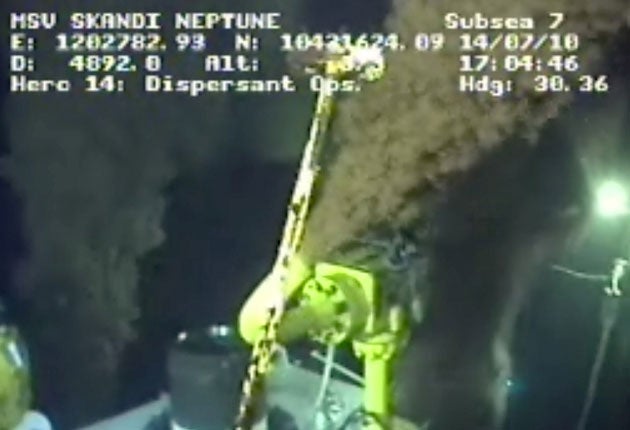No signs – yet – of leaks from BP's oil cap

BP was encouraged yesterday as the final hours ticked away on a two-day trial run of a cap on its Gulf of Mexico well. A spokesman said there were no signs of new leaks and oil was being kept out of the water.
Kent Wells, a BP vice president, said there was no evidence from an array of pressure, temperature, sonar and other readings that oil was escaping through the sea floor or anywhere else in the well. A new breach underground was a major concern going into the test, because oil breaking through the sea floor would be harder to control and could endanger plans for a permanent underground plug. "We're feeling more comfortable," Mr Wells said on a conference call, but cautioned: "The test is not over."
BP shut valves in the cap, pictured left, on Thursday, stopping the flow of oil into the Gulf for the first time since the 20 April explosion on the BP-leased oil rig Deepwater Horizon killed 11 workers and unleashed the spill 5,000ft below the sea. With the cap working like a giant cork to keep the oil inside the well, scientists kept watch in case the build-up of pressure underground caused new leaks in the well pipe and in the bedrock.
Pressure readings after 41 hours were 6,745lb per square inch and rising slowly below the 7,500 psi that would have shown the well was not leaking. A low pressure reading, or a falling one, could mean the oil is escaping. Mr Wells said the oil company was making progress on its more permanent solution, a relief well that will be used to plug the leak with a mixture of mud and cement.
Join our commenting forum
Join thought-provoking conversations, follow other Independent readers and see their replies
Comments
Bookmark popover
Removed from bookmarks